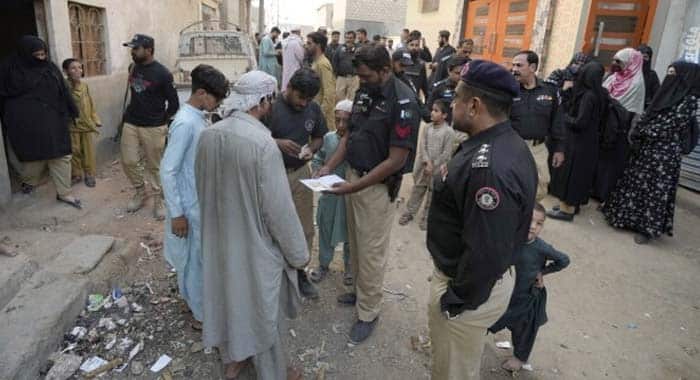After ordering the closure of Afghan refugee camps in Khyber Pakhtunkhwa, the Pakistani government has announced that it will now take legal action against any citizen or organisation that shelters, employs, or otherwise assists undocumented Afghan nationals.
In an official statement, authorities warned that “strict and decisive” action will be taken against those helping illegal migrants in any capacity, including providing housing, hotel accommodations, or jobs. The move is part of an intensified nationwide campaign to identify and deport foreign nationals living in the country without valid documentation.
The directive comes amid escalating tensions between Islamabad and Kabul, following a series of attacks by the Afghan Taliban on Pakistani border outposts. Security sources told Qudrat newspaper that these cross-border assaults have triggered a major shift in policy, pushing the government to tighten control over its borders and take a firmer stance on illegal migration.
Legal and administrative steps are being prepared to prosecute those found aiding or hiding undocumented Afghans, with the government making it clear that leniency will no longer be afforded to violators, regardless of intent or affiliation.
Notably, the ruling party in Khyber Pakhtunkhwa, Pakistan Tehreek-e-Insaf (PTI), has emerged as one of the most prominent political forces supporting Afghan refugees on the ground. From facilitating housing to resisting forced repatriation, PTI leaders have often positioned themselves as defenders of refugee rights. This raises a significant legal and constitutional question: if aiding undocumented individuals is now a punishable offense, will the same rules apply to a political party in power? Legal experts say the federal government may soon have to clarify its stance.
This clampdown follows a separate but related federal order to close long-standing Afghan refugee camps across multiple districts of Khyber Pakhtunkhwa, including Dera Ismail Khan, Tank, Lakki Marwat, Bannu, Mansehra, Charsadda, and Malakand.
According to the official notification, provincial authorities have been directed to carry out immediate evacuations, clear all encroachments, and restore occupied lands. Administrative action is to begin without delay.
Defence Minister Khawaja Asif stated that the Afghan authorities themselves have acknowledged the presence of terror groups operating from their soil, some of which are directly linked to attacks inside Pakistan. “Anyone attacking Pakistan will not be ignored. A fitting response will be given under the principle of tit for tat,” he warned.
The minister added that modern intelligence tools leave little room for militants to hide, and any act of aggression would be met with a coordinated, strategic response.
Officials say the closure of camps is not just about repatriation, it’s about restoring law, reclaiming illegally occupied land, and neutralising internal threats. They maintain that while Pakistan has hosted millions of Afghan refugees for over four decades with unmatched generosity, today’s security environment demands a firmer policy.
The government has reiterated that the ongoing repatriation process will be handled with dignity and humanitarian consideration, though national sovereignty and the rule of law remain paramount.
Further details regarding the logistics and timeline of repatriation are expected to be released in coordination with provincial administrations.





